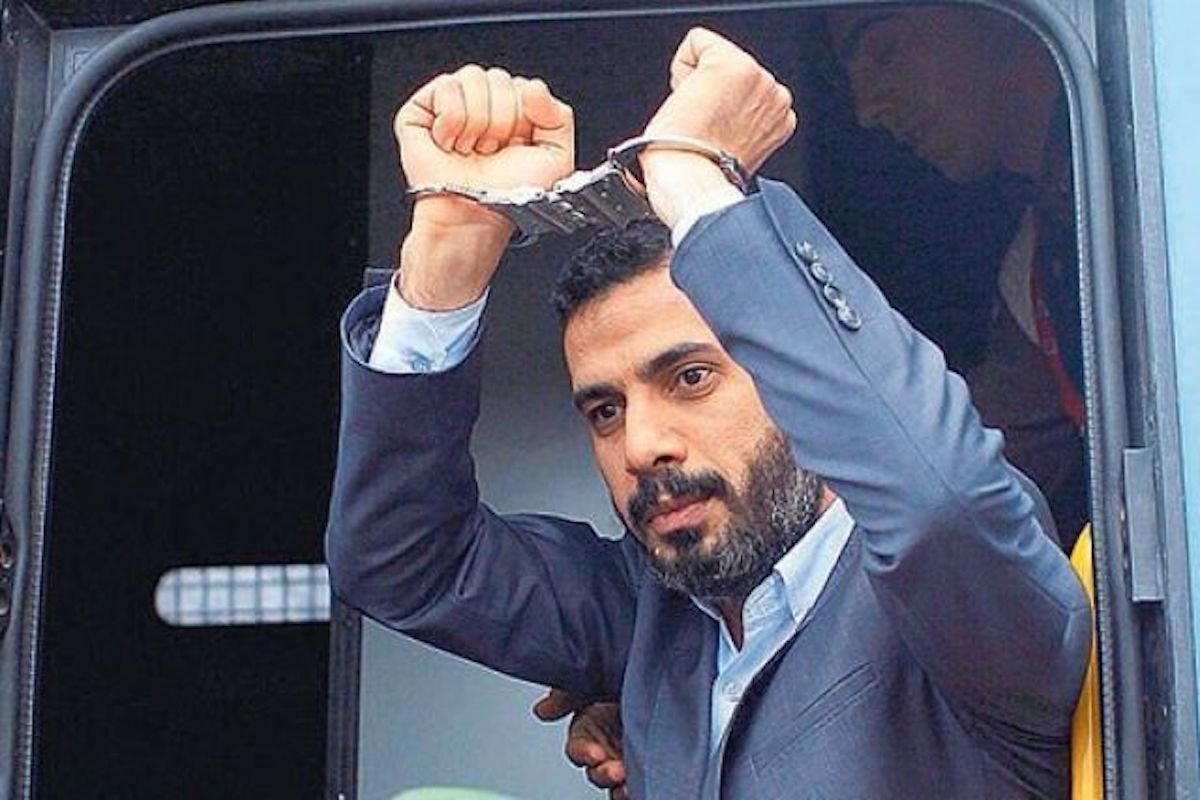A Turkish court ruled on Friday for the continuation of the imprisonment of journalist Mehmet Baransu, a former correspondent for the now-defunct Taraf newspaper, after two days of hearings, adjourning the trial until January 3-4, 2019.
Baransu continued to present his defense before the İstanbul 13th High Criminal Court on Friday.
He was arrested in March 2015 for allegedly procuring and publishing secret state documents in connection with the disclosure of a war plan called the Egemen (Sovereign) Operation Plan.
Baransu is charged with “possession of documents classified as state secrets,” “exposing classified information crucial to state security and interests” and allegedly “damaging, procuring or stealing documents concerning the security of the state or using said documents outside their intended purpose” in the indictment for this case, overseen by the İstanbul 13th High Criminal Court.
According to information shared by @P24DavaTakip, which follows the trials of jailed journalists in Turkey, in his defense on Friday Baransu said: “I am on trial for a plan named the Egemen Operation Plan, which I have never seen. I am telling you what I wrote. I did not see any war plan. I am on trial for a document that I did not know about at all.”
“I wrote about the Balyoz [Sledgehammer] coup plan, and it is an honor for me as a journalist to write about a coup plan. If there was an injustice in the Sledgehammer trial, it is the problem of those who conducted the trial,” said Baransu.
Underlining the fact that the authenticity of the Balyoz coup plan was confirmed by Turkish President Recep Tayyip Erdoğan’s ultranationalist ally Devlet Bahçeli, the leader of Nationalist Movement Party (MHP), in 2015, by former Justice Minister Bekir Bozdağ in 2016, by President Erdoğan in 2016 and by Parliament Speaker Binali Yıldırım 15 or 20 days ago, Baransu said he viewed his trial as theater.
“I have not even been allowed to bring newspaper clippings or books to use during my defense in court. The book I am talking about is part of the evidence,” Baransu said and added that he has not been tried fairly.
Reminding that he was arrested by Judge Cevdet Özcan, who released an Iranian drug baron, Baransu said, “This case is garbage.” Showing the signature of Judge Özcan under his arrest warrant to the panel of judges, Baransu said: “This judge hid documents during my testimony. I stand behind my news stories. Does this judge stand behind his decision for my arrest?”
In an article that appeared in the Habertürk newspaper on Wednesday, columnist Fatih Altaylı claimed that a former Justice and Development Party (AKP) deputy pressured a judge to have Iranian drug lord Naci Sherifi Zindashti released from prison pending trial.
The notorious drug lord and nine of his gang members had been detained by İstanbul narcotics police in a raid in April of this year. Zindashti was released pending trial along with three of his men on Oct. 19 by judge Cevdet Özcan who approved his lawyer’s application.
“I am not saying anything about the detention because I view these cases as theater,” Baransu said, adding: “The real face of the judge who arrested me was exposed, the real face of others will also be exposed. A judge who doesn’t know why I was arrested rules for the continuation of my imprisonment. People should see how ‘fairly’ I have been tried.”
Baransu’s lawyer, Yahya Engin, stated that despite the fact that his client did not have a statement for his release, he had been imprisoned for almost four years as a journalist and requested the release of Baransu, saying, “There is no secret document, and Article 5 of the European Convention on Human Rights is open.”
However, the court again ruled for the continuation of Baransu’s imprisonment and adjourned his trial until January 3-4, 2019.
Former Taraf editor-in-chief Ahmet Altan, former executive editor of the same newspaper Yasemin Çongar and managing editor Yıldıray Oğur are also defendants in the case, facing up to 52 years, six months in prison for “destroying, using outside the intended purpose of, and illegally acquiring documents related to the security of the state.” Another defendant, Tuncay Opçin, remains at large.
Baransu is also jailed pending trial in a separate case that concerns his reporting in 2013 on an alleged customs fraud involving genetically modified rice. The indictment accuses Baransu of “attempting to overthrow the government” and “membership in a terrorist organization.”
Baransu is still being held at the Silivri Prison in İstanbul, facing nearly a thousand years in jail as part of scores of different cases.
Turkey is ranked 157th among 180 countries in the 2018 World Press Freedom Index released by Reporters Without Borders (RSF). If Turkey falls two more places, it will make it to the list of countries on the blacklist, which have the poorest record in press freedom.
Turkey is the biggest jailer of journalists in the world. The most recent figures documented by SCF show that 239 journalists and media workers were in jail as of October 31, 2018, most in pretrial detention. Of those in prison 170 were under arrest pending trial while only 69 journalists have been convicted and are serving their time. Detention warrants are outstanding for 148 journalists who are living in exile or remain at large in Turkey.
Detaining tens of thousands of people over alleged links to the Gülen movement, the government also closed down some 200 media outlets, including Kurdish news agencies and newspapers, after a coup attempt in Turkey on July 15, 2016.















